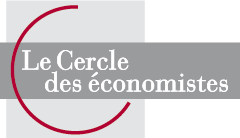The Way Forward for the Middle Class
By Monika Queisser, Senior Counsellor and Head of Social Policy Division in OCDE
Links to referrers :
A strong and prosperous middle class is crucial for any successful economy and cohesive society. Being a middle-class family is associated with having a stable and reasonably well-paid job, living in comfortable conditions, often as a house owner, and, importantly, being able to offer one’s children a promising future, with good chances of further moving up the ladder of income and opportunities.
The middle class sustains consumption, it drives much of the investment in education, health and housing and it plays a key role in supporting social policy, paying for about two thirds of taxes and contributions going to social protection systems. Societies with a strong middle class have lower crime rates, they enjoy higher levels of trust and life satisfaction, as well as greater political stability and good governance.
But the middle class is gradually shrinking and living a middle-class lifestyle is becoming more and more difficult, in France and elsewhere. On average across OECD countries, the share of people in middle‑income households, defined as households earning between 75% and 200% of the median national income, fell from 64% to 61% between the mid‑1980s and mid‑2010s; in France, at 68%, the share of middle-class people in the population is still higher than the OECD average. Middle incomes have barely grown in most OECD countries, while high earners have been seeing their incomes grow. Overall, over the past 30 years, OECD median incomes increased a third less than the average income of the richest 10%.
The middle-income group has grown smaller with each successive generation: 70% of the baby boomers were part of the middle class in their twenties, compared with 60% of the millennials. Uncertain of their own prospects, the middle class are thus worrying about those of their children; the current generation is one of the most educated, and yet has lower chances of achieving the same standard of living as its parents. The OECD’s 2020 survey on Risks that Matter confirms that 66% of French people are somewhat or very concerned that their children will not be as well-off and financially secure as they are; this is higher than OECD average of 59%, and more pessimistic than most of Europe.
Automation and digitalisation bring new challenges for the middle class. Both in France and in the OECD, on average, one in six middle-income workers are in jobs that are at high risk of automation. Many youth are struggling to transition from school to work on a stable path, and many of them are only able to secure a succession of internships, short-term contracts, underemployment, and unstable jobs. The pandemic has only made this situation worse. There is a big risk that the scars from this situation will permanently damage young people’s careers and lifetime incomes.
In parallel, the cost of typical goods associated with a middle‑class lifestyle have increased faster than inflation. Finding affordable housing is becoming harder. Over the past two decades the share of housing in household spending has grown more than any other item – ahead of food and clothing, transport, health and education. One reason is rising housing prices, especially for renters: since 2005, rent prices have increased in all but two OECD countries. Early evidence shows that the pandemic has driven up house prices due to higher household savings of the better-off, an environment of low interest rates, and insufficient supply to match higher demand.
Governments have a set of tools at hand to improve the situation of the middle class. But there are no easy, short-term fixes. Demographic, economic, social and technological developments mean that people – and policy makers – have to navigate an increasingly uncertain environment. Educational and occupational choices, for instance, which up until recently were considered “safe bets” are no longer enough to guarantee a stable, well-paid career. As OECD’s work on ageing and inequality shows, the risk of accumulated disadvantage has increased, with risks of unemployment, poor health, of low education and disability compounding and putting societies’cohesion at risk.
For lasting impact, vulnerabilities must be tackled at their roots, not when inequalities are already deeply entrenched and hard to reverse. This, however, will require a complete reset in the way we think about and design policy. A life-cycle approach to policy is needed, starting in early childhood through to young adults when the foundations for socio-economic inequalities are laid. Early investment needs to be followed by sustained policy interventions at critical points in people’s lives, such as the school to work transition, unemployment spells, health problems and disability, but also other life events such as divorce and family break-up, or risks of homelessness.
This can only work if governments take a horizontal approach: education and skills, labour, social, health and housing ministries all have to work together. And this of course implies a central role for finance ministries, not only in reviewing tax and benefit systems to support vulnerable groups and prevent further slipping of the middle class, but also in allocating budgets across policy areas and along the life-cycle. Social partners and civil society who can identify risks early on and address them at the workplace and in society are key partners in this process. It is high time for policy action. Let us not waste another day.












